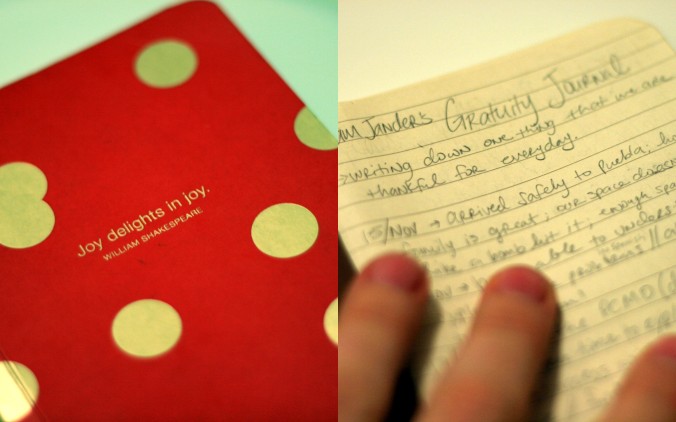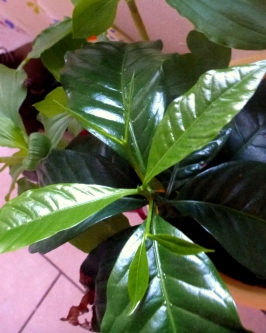During the season of Lent this year, I decided to ‘give up’ Facebook. I have always struggled with comparing myself to others and Facebook is the perfect habitat to do so. Sure, its a good communication tool, but it’s become a online place where people attempt to present their best selves to the internet. Largely it has become a place to brag or show off an accomplishment to say, “Look at me! I do this all the time! Isn’t my life awesome?!” Okay so maybe people don’t intentionally set out to do just that, but perhaps you take 2 or 3 selfies before picking your best one? Not that it’s wrong, but the whole concept has become uncomfortably toxic to me over the years; present your best self and pretend that you are that person 100% of the time. It transforms you to be an impostor of your true self. Anyway, so I chose to fast from Facebook for 40 days and here is what I learned.
- The addiction is real. When I first started this fast, I had to be really intentional about not going on Facebook. In the first week as I was browsing the internet somehow I ended up on the Facebook homepage more than once. How did that happen? I removed the bookmark and anything that could automatically lead me to it. It was my own two hands typing in f-a-c-e-b-o-o-k-.-c-o-m without my brain even realizing it. Yeah, I was terrified to say the least! I had this constant pull to see how many people liked my photo or messaged me to say hey or to check on whose birthday it was that day. It was this constant, real gnawing at my brain and I think the only reason I noticed it was because I was fighting the urge to log on. I knew that I was addicted to it before I gave it up, but good golly miss Mollie (hey girl!) I had no idea how much of a grip it had on my ability to be present in my daily life. It was a real challenge to give it up, but by the end of it I can look at my presence on Facebook as a choice and less of an addiction.
- Facebook does not make me feel better about my life. On Sundays I would check my Facebook to see what was going on in the world, connect with friends who didn’t know I was fasting during the week, and to see whose birthday it was just so I could send them a Happy Belated Birthday text. It wasn’t so bad because normally on Sundays I was off having my own adventures and had only a few spare moments to check Facebook during the Lenten season. But things would still pop up on my newsfeed that would instantly make me feel jealous or less than in just a few seconds. Seconds! Two seconds before I was completely content with my life and then two seconds later I feel miserable because I didn’t do x,y, and/or z. So why would I continue to invest my time and energy into something that can make me feel so negative about my own life?
- People assume I know what’s going on in their life. Our world has become so Facebook-centric – save a few friends – that is has become a current of knowledge. If it’s on Facebook, you should know when a birthday is or that someone got engaged, or that someone went skydiving even though they’re terrified of heights. All of those items are really important if you are trying to cultivate a real friendship. You should know those things about those close to you! Let me tell you that I need to set my own calendar reminders for people’s birthdays because I missed a few important ones these past 40 days. But it’s true! People would assume that I knew details of their lives just because they posted them on Facebook. It felt awful to be behind in nearly every social interaction.
- Choosing to intentionally connect with a smaller group of people satiated me much more than Facebook. This past month I finished a Coursera class on Positive Psychology. I promise you this is much less woo woo than it sounds. Basically, the way you feel about life comes down to the connections you have with those around you. A smile from a stranger can make you feel safe and welcome. A thief stealing your handbag can make you feel scared and unsafe. A hug from a loved one can make you feel comforted and uplifted. A stranger manspreading in your personal space can make you feel uncomfortable and small. It comes down to the connections that we have on a daily basis and who we share them with. One of the biggest takeaways from this class is that Facebook, texting, and online chatting do not give your brain the boost of good stuff like a real-time interaction does. It’s true! You need a real-time connection to get the physiological benefits of a positive interaction. Do you want to feel happier right now? Pick up the phone, call a loved one just to catch up. Facetime instead of gchatting a friend. Your brain and emotions will thank you. For more on positive psychology, check out this article or this one.
- There is enough time out there to accomplish your dreams and goals. But I can’t achieve them by sitting on Facebook, feeling bad about myself, and just hoping that my life will magically be awesome. Nope, I had to work at it and make my dreams a reality. These past 40 days I have been able to accomplish goals like starting to read through the Old Testament, starting my garden, baking, reading, creating a prayer journal, writing letters, and more. It’s easier to accomplish my goals when I not only had the time, but the space in my brain to do something I’ve always wanted to do. I wasn’t bogged down and thinking about how much I didn’t accomplish that day in comparison to my peers – no – instead my mind was clear and I could look at my free time differently. I approached life with a lighter step. Here are a few things I have done in my Facebook-free time.
So what’s next? Do I continue my Facebook fast or do I reconnect the Facebook feed line right to my vein? To be honest, I choose neither. Extremism isn’t my thing. I’m more of a middle road kind of girl. I choose honest, real friendships and relationships over superficial content any day. I’ll give preference to those who want to text, call, Facetime, or send letters to keep in touch. Sure I will log on once or twice a week just to see what’s up, but don’t expect me to know every detail of your life unless you tell me. In return, I will give you my friendship, my love, and my undivided attention.
Yours,
Chelsea Beth
PS – If you want to get in touch on a more personal level but don’t know how, just comment below and we’ll make it happen!




 for breakfast is simply the best. In Mexico, a typical breakfast is most likely leftovers or anything that falls under the category of Vitamin T: tamales, tacos, tortas, tlacoyos, tortillas, tequila or any typical Mexican food that starts with a T. [For the record, I have not had any tequila with breakfast… yet!] Actually, it’s really quite difficult to find any component of a typical American breakfast in a restaurant setting. To be honest though? I will take blackberry and queso tamales any day in lieu of eggs, bacon, and pancakes.
for breakfast is simply the best. In Mexico, a typical breakfast is most likely leftovers or anything that falls under the category of Vitamin T: tamales, tacos, tortas, tlacoyos, tortillas, tequila or any typical Mexican food that starts with a T. [For the record, I have not had any tequila with breakfast… yet!] Actually, it’s really quite difficult to find any component of a typical American breakfast in a restaurant setting. To be honest though? I will take blackberry and queso tamales any day in lieu of eggs, bacon, and pancakes. So if you haven’t noticed by now, we are total foodies. Our amiga bonita, Laura taught us how to cook
So if you haven’t noticed by now, we are total foodies. Our amiga bonita, Laura taught us how to cook  If you’re traveling in Mexico, you are probably interested in tourist attractions at a local, mexicano price. Asking at the hotel will get you signed up for the “best” tour company in the area, which is likely 200% more expensive than the local way. Asking a street vendor how to get to Destination X without purchasing anything will only get you a shrug or two. Now if you take a Mexican approach to the situation, all you have to do is be friendly and interested in the product or food available. You can ask about the history of the place or what makes the food specific to that region or how that product was hand crafted. Not only will you gain a deeper understanding of the region, you will likely be able to get the information you need to arrive safely and cheaply to your chosen destination.
If you’re traveling in Mexico, you are probably interested in tourist attractions at a local, mexicano price. Asking at the hotel will get you signed up for the “best” tour company in the area, which is likely 200% more expensive than the local way. Asking a street vendor how to get to Destination X without purchasing anything will only get you a shrug or two. Now if you take a Mexican approach to the situation, all you have to do is be friendly and interested in the product or food available. You can ask about the history of the place or what makes the food specific to that region or how that product was hand crafted. Not only will you gain a deeper understanding of the region, you will likely be able to get the information you need to arrive safely and cheaply to your chosen destination.


